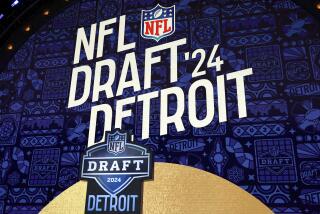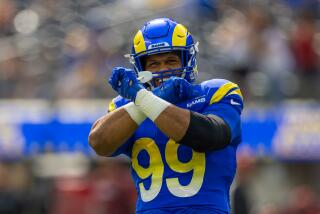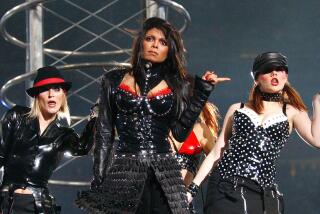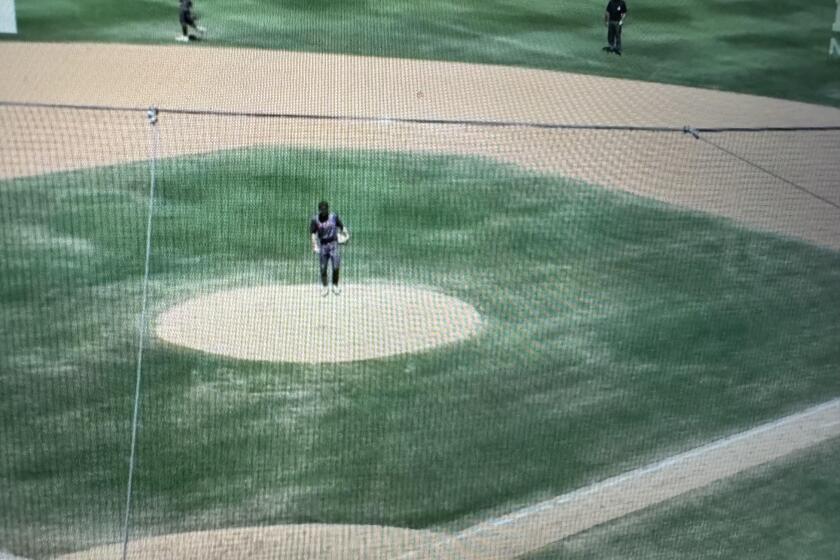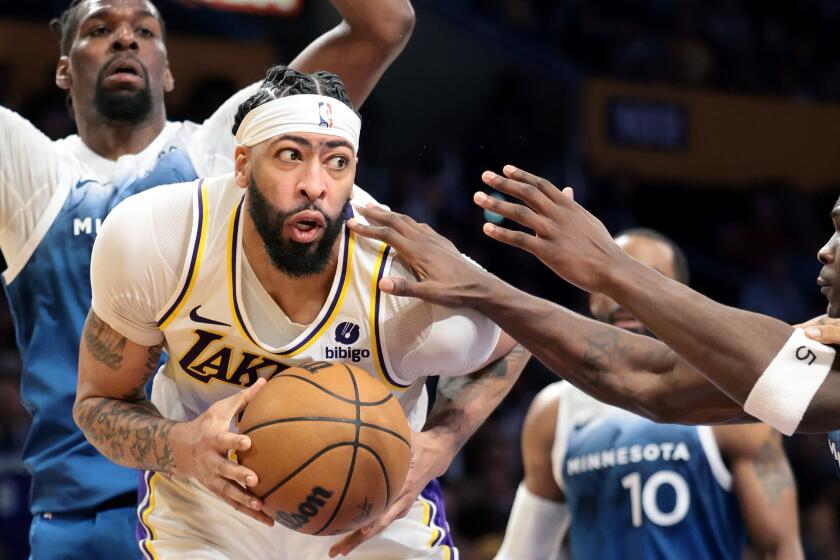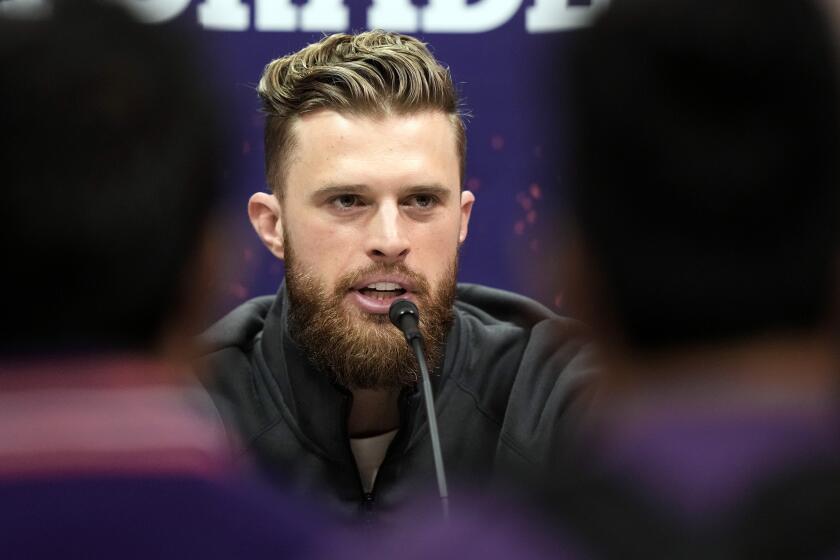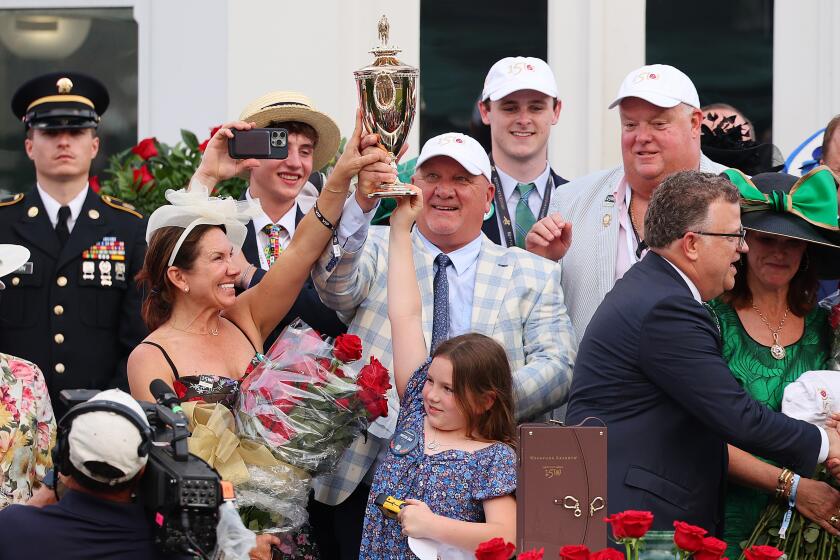After 25 years, ‘Da Bears’ get their White House visit
On that frigid day in 1986 when Chicago threw a tickertape parade to honor the Bears’ Super Bowl win, Illinois Sen. Alan Dixon sent a letter to the White House: Would President Reagan host a reception for the team?
Mr. President, meet “The Fridge.”
It never came off.
The morning after the parade, the space shuttle Challenger exploded shortly after liftoff, killing a crew of seven and plunging the nation into mourning. No one felt like celebrating a Super Bowl.
Gary Fencik, a free safety on the team, was at his locker that day in Halas Hall, watching coverage of the launch in disbelief.
“I saw the takeoff and saw the accident and pretty much realized at that point that our celebration was over,” said Fencik, now a partner in a private equity firm.
The 1985 Bears never rescheduled their appointment with Reagan, nor did they reprise the “Super Bowl Shuffle,” the rap tune that became a pop cultural sensation. Players got hurt or retired. Coaches moved on. Hopes faded of a Bears dynasty, or even another championship.
But now the White House is home to a Chicagoan who roots for the Bears, reads local newspaper coverage of the team and is always eager to showcase his everyman credentials. The NFL called the White House soon after Obama was sworn in and asked whether the ’85 Bears could get a belated celebration. “It’s been on our radar ever since,” a White House aide said.
On Friday, a quarter-century after they crushed the New England Patriots, 46-10, “Da Bears” are getting their celebratory visit to 1600 Pennsylvania Avenue.
It is a team with a changed perspective, matured from young athletes who played with fury to middle-aged men who have coped with the death of teammates and the long-term health consequences of playing many years before the league put in rules to prevent head injuries. Of the roughly 100 ex-players, coaches and staff set to meet President Obama, some of the most memorable names won’t be there.
Legendary running back Walter Payton died of cancer at age 45. The White House visit comes three days after the release of a book alleging that Payton used painkillers even after retiring and sank into a post-football depression.
Dave Duerson, a safety, killed himself this year. He suffered the same damage to his brain found in other deceased NFL players who endured years of traumatic hits.
In the last 10 years of his life, Duerson “didn’t really know what was going on with him; no one did,” said his ex-wife, Alicia Duerson, who will be at the event. “There was no education on it whatsoever. So Dave just spiraled on down. It was just sad to think about it because he was such a wonderful person.”
Also absent: William “Refrigerator” Perry, the massive lineman who flattened quarterbacks and delighted fans with goal-line plunges that showed even a fat man can score touchdowns. These days, Perry has difficulty traveling because of an immune disorder and won’t make the trip, according to a person close to him.
“It’ll be a little bittersweet because we lost some guys,” said Brian McCaskey, an assistant athletic trainer on the ’85 team and now the senior director of business development for the Bears. “But at age 50 you can appreciate what this trip means as opposed to age 25. I was 25 when we won the Super Bowl and you had that feeling of invincibility, like we were going to do this year after year.
“This trip will have a lot more meaning. Your world changes a lot in 25 years. You get the perspective of a mature adult.”
It’s a different game now. Years of medical research established links between the hits that NFL players absorb and chronic traumatic encephalopathy, or CTE, which can cause dementia, depression and memory loss.
CTE, which can only be diagnosed after death, was found in at least 20 deceased former NFL players, including Duerson. After defensive back Andre Waters committed suicide in 2006 at age 44, doctors found that his brain resembled that of an 85-year-old man.
When Duerson shot himself, he aimed the bullet at his chest rather than his head. He also left a note saying, “Please see that my brain is given to the NFL’s brain bank,” a reference to a center at Boston University’s medical school that has received funding from the league to study brain disease.
Fencik said he, Duerson and other defenders from the ’85 squad would be “fined out of the league” if they had to play under the new rules. “Today, I look at the safeties and they can’t use their helmets as weapons,” he said.
The Bears visit also will be a reunion of sorts. On hand will be fiery coach Mike Ditka and the team’s defensive mastermind, Buddy Ryan. Both were carried off the field in New Orleans when Super Bowl XX ended, symbolizing a rift in the coaching staff that seems to have closed with time. Speedy wide receiver Willie Gault is coming, as is Richard Dent, the defensive lineman who was the Super Bowl MVP that year.
Obama also will greet Jim McMahon, the eccentric quarterback who once likened himself to the rebellious mental patient played by Jack Nicholson in “One Flew Over the Cuckoo’s Nest.”
“I’m the punky QB known as McMahon. When I hit the turf I’ve got no plan,” McMahon sang in the “Super Bowl Shuffle.”
Since their careers ended they’ve started foundations promoting fitness and literacy. They manage money, promote products and coach other NFL teams.
Gault remains in excellent physical condition, training with Olympic athletes and still clocking impressive times. As for the others, “there’s only about five of us in good shape,” said Otis Wilson, a former linebacker.
Still, they are loyal to one another.
Asked to rate McMahon against the Bears quarterback this year, Jay Cutler, Dent said: “I would take Jim McMahon all day. You can have the talent, but if you don’t have the attitude between those two ears, you don’t have much.”
Like most of America, the old Bears are divided about the man hosting the event. Some know Obama from Chicago. Dent once had a locker next to his at the East Bank Club. He recalls a gym conversation in which Obama, who had just lost a race for Congress, seemed uncertain about his political future.
Dent said he was troubled by the antipathy he sees directed at Obama. He drew a parallel with Harold Washington, Chicago’s first black mayor.
“I feel that same rage from people about our president today. The disrespect!”
Others are less sympathetic. Dan Hampton, a defensive lineman, told a radio station he wouldn’t attend in part because he is “not a fan of the guy in the White House.”
Had the timing been better, Reagan surely would have enjoyed meeting the team. Presidents had invited individual athletes to the White House for decades, but it was Reagan who “really started this modern tradition of honoring winning teams to the White House,” said William Bushong of the White House Historical Assn.
Reagan and wife Nancy watched the Super Bowl that night in the White House, according to his daily diary. Later, he phoned Ditka and losing coach Raymond Berry. A White House aide wrote out talking points for the president’s call to the Bears: “And what players — Walter Payton, Jim McMahon, The Refrigerator — I just wish we had them on our team here in Washington.”
“We all loved the Bears,” Marlin Fitzwater, former press secretary to Reagan, said last week. “That was ‘Da Bears’ year!”
More to Read
Get our high school sports newsletter
Prep Rally is devoted to the SoCal high school sports experience, bringing you scores, stories and a behind-the-scenes look at what makes prep sports so popular.
You may occasionally receive promotional content from the Los Angeles Times.
